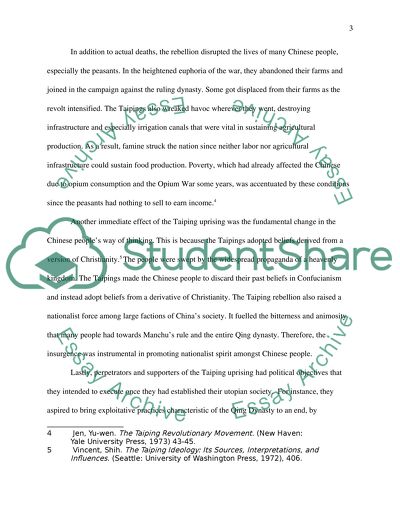Cite this document
(“Effects of Taiping rebellion Research Paper Example | Topics and Well Written Essays - 1750 words”, n.d.)
Retrieved from https://studentshare.org/history/1494719-effects-of-taiping-rebellion
Retrieved from https://studentshare.org/history/1494719-effects-of-taiping-rebellion
(Effects of Taiping Rebellion Research Paper Example | Topics and Well Written Essays - 1750 Words)
https://studentshare.org/history/1494719-effects-of-taiping-rebellion.
https://studentshare.org/history/1494719-effects-of-taiping-rebellion.
“Effects of Taiping Rebellion Research Paper Example | Topics and Well Written Essays - 1750 Words”, n.d. https://studentshare.org/history/1494719-effects-of-taiping-rebellion.


